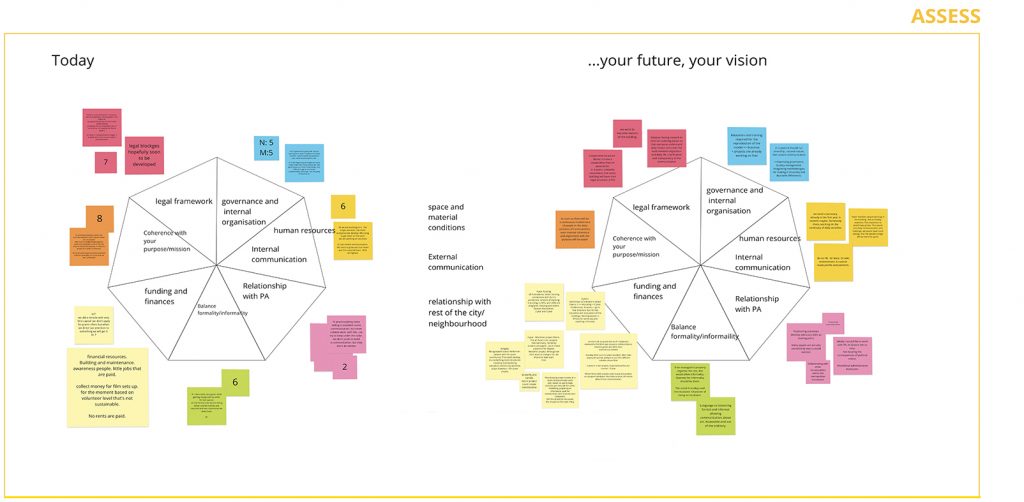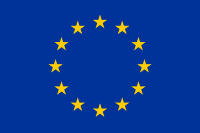
Coaching is based on the assumption that the person or organisation being coached has the answer and the capacity to address their challenges and issues. The coach is somebody who, by asking the right questions, allows an organisation to create a different perspective, to become aware of their potential and to take action towards the desired goals.
This tool is for you if…
How long does it take?
How many participants?
What do you need to play?
Your organisation needs to redefine their vision and purposes or develop and improve its way of functioning
Depending on the needs of the participants, two or more sessions. On average each session lasts from one hour and a half to two hours
One participant may lead to a limited understanding of the situation as only one point of view would be represented. Aim at a group of 3-4 participants for collecting multiple points of view, while leaving enough time for everybody to express their thoughts.
A table large enough for everybody to sit around, printed copies of the visuals (which you can download from this webpage), post its, paper, pencils and pens for everybody to take notes. If you cannot organise an in-person meeting, you can meet on any digital platform and use digital tools for your brainstorming.
Governance is not only about regulating the decisional processes. It is the totality of activities and systems that govern a given set of resources. As such, governance is a process of continuous negotiation between the available capacities and the mission to be accomplished. Necessarily governance is continuously evolving, responding to changing conditions and the changing identity of the concerned actors and organisations. This means that it is not possible to design a specific governance system without revising and taking into account, on the one hand, the conditions within which such a system is supposed to operate; on the other hand, without having a long term vision to focus on for the growth of the organisation.
Working as a mirror, Mirroring is a tool allowing collectives to take the time to look in their own eyes and reflect on their values, capacities and purposes as a starting point for designing an effective and sustainable development strategy and the required system of governance. The process consists of four steps: the envisioning of a desirable future for the collective in the short, medium and long run; the assessment of the capacities required to realise such a future; the design of an actionable plan making possible the achievement of the desired goals; the identification of an accountability system giving the possibility to check on the actual progress and results of the devised strategy. The reinterpretation of coaching techniques provided the fundamental elements to structure the process with minimal features, allowing organisations and collectives to adapt it to their specific characteristics and needs. The visual support provided allows organising the process while preserving the notes and reflections for the forthcoming sessions.
Click below to download the Instructions Booklet and the Visuals you may use during the Mirroring process.

A screenshot of a Mirroring session, during the assessment phase.
info@generative-commons.eu

| Cookie | Duration | Description |
|---|---|---|
| cookielawinfo-checkbox-analytics | 11 months | This cookie is set by GDPR Cookie Consent plugin. The cookie is used to store the user consent for the cookies in the category "Analytics". |
| cookielawinfo-checkbox-functional | 11 months | The cookie is set by GDPR cookie consent to record the user consent for the cookies in the category "Functional". |
| cookielawinfo-checkbox-necessary | 11 months | This cookie is set by GDPR Cookie Consent plugin. The cookies is used to store the user consent for the cookies in the category "Necessary". |
| cookielawinfo-checkbox-others | 11 months | This cookie is set by GDPR Cookie Consent plugin. The cookie is used to store the user consent for the cookies in the category "Other. |
| cookielawinfo-checkbox-performance | 11 months | This cookie is set by GDPR Cookie Consent plugin. The cookie is used to store the user consent for the cookies in the category "Performance". |
| viewed_cookie_policy | 11 months | The cookie is set by the GDPR Cookie Consent plugin and is used to store whether or not user has consented to the use of cookies. It does not store any personal data. |